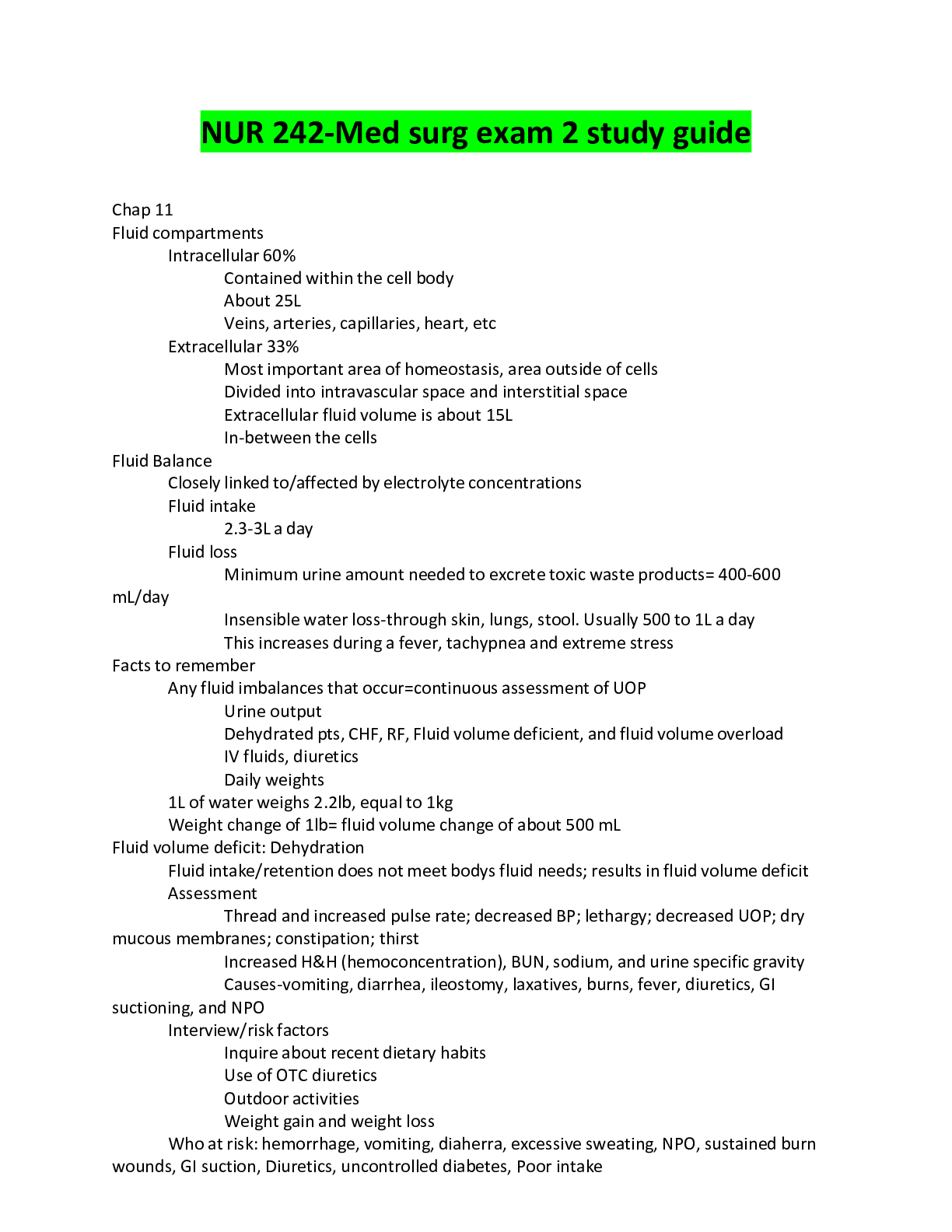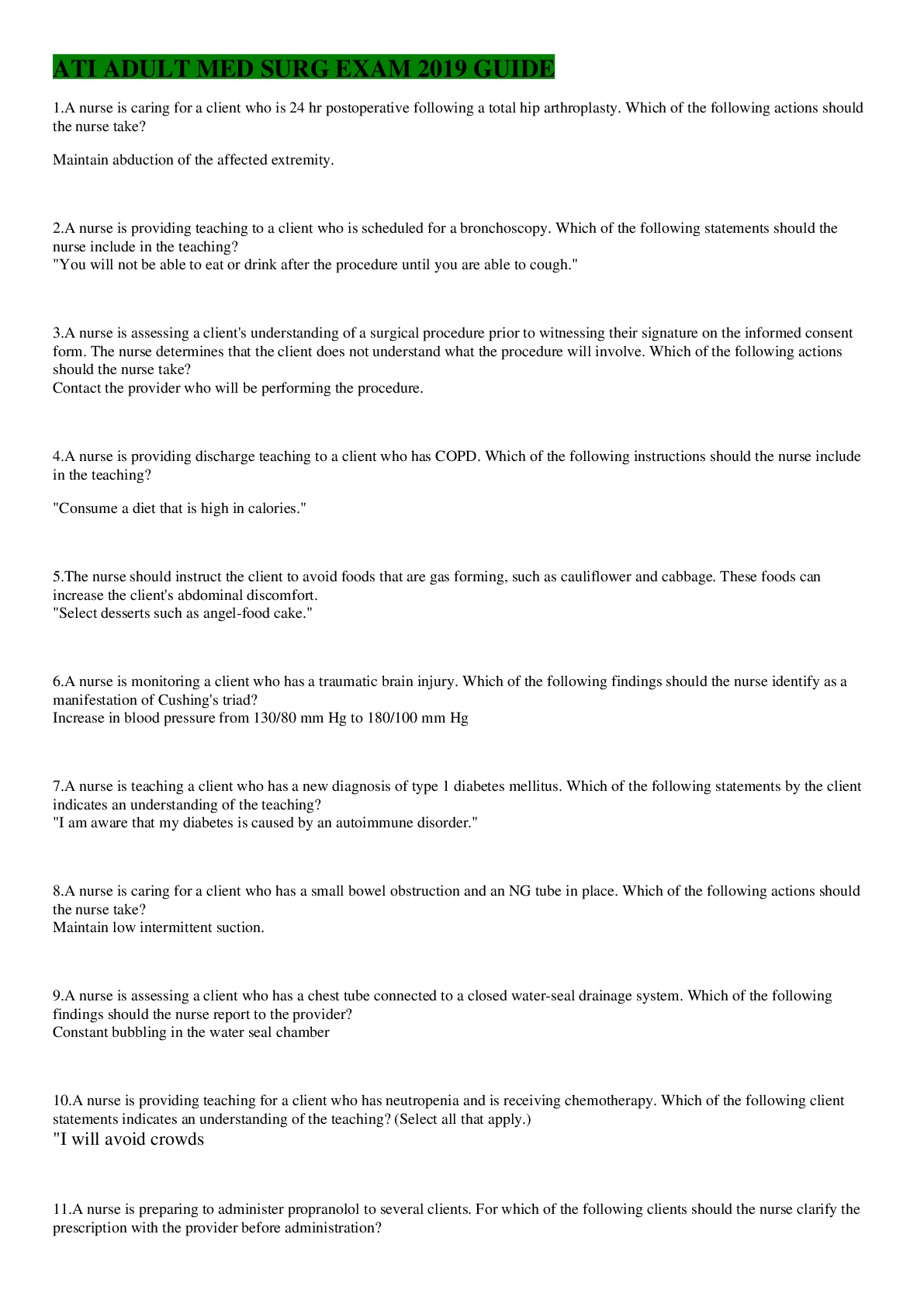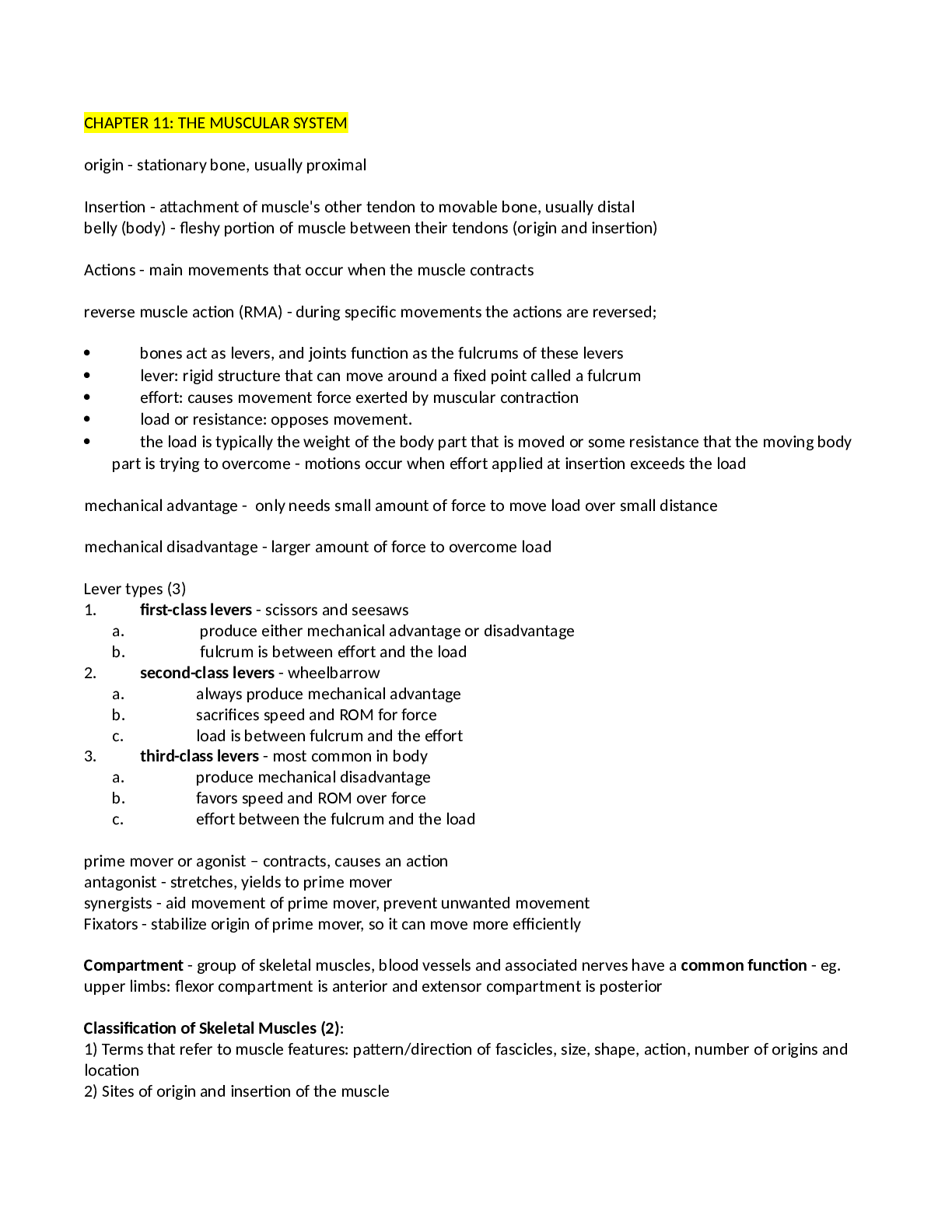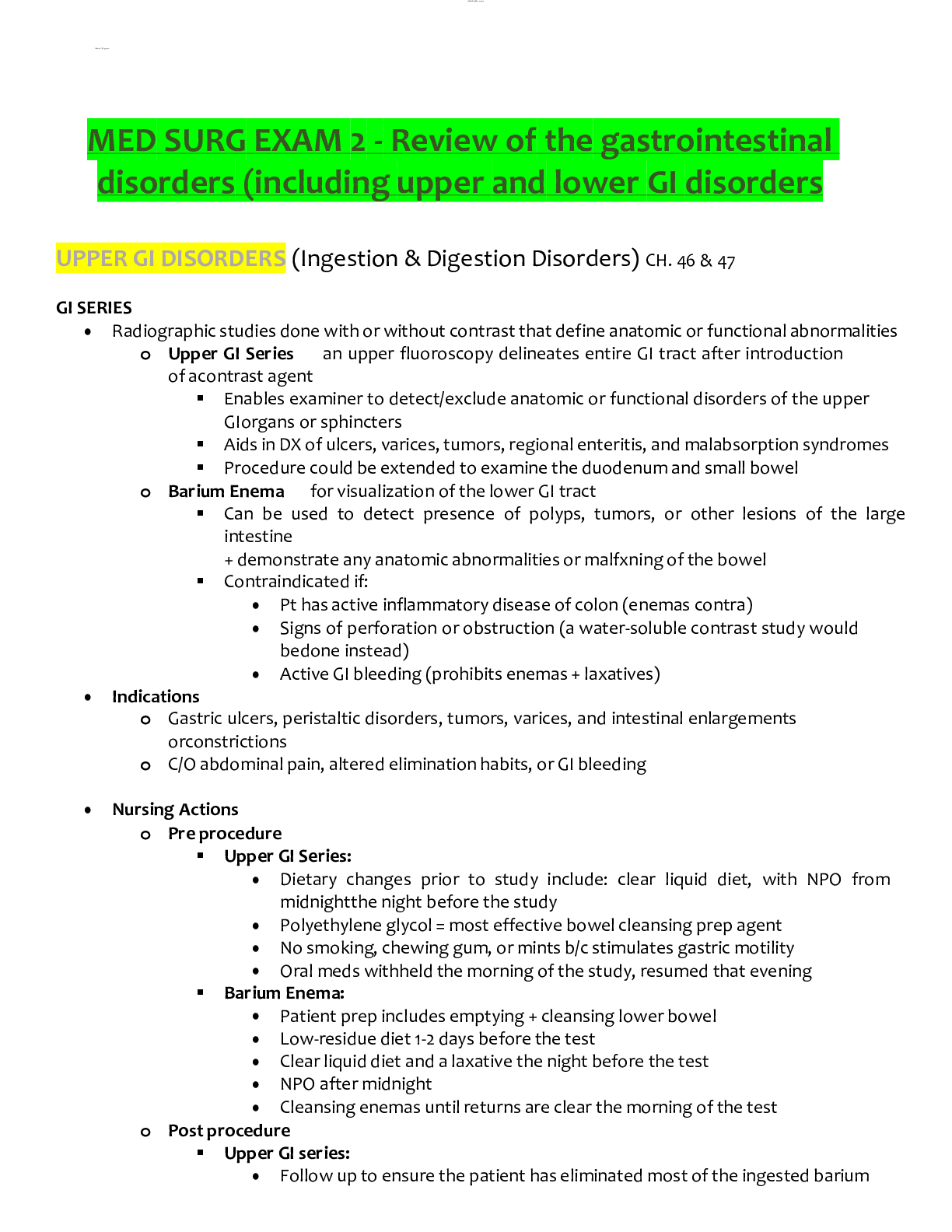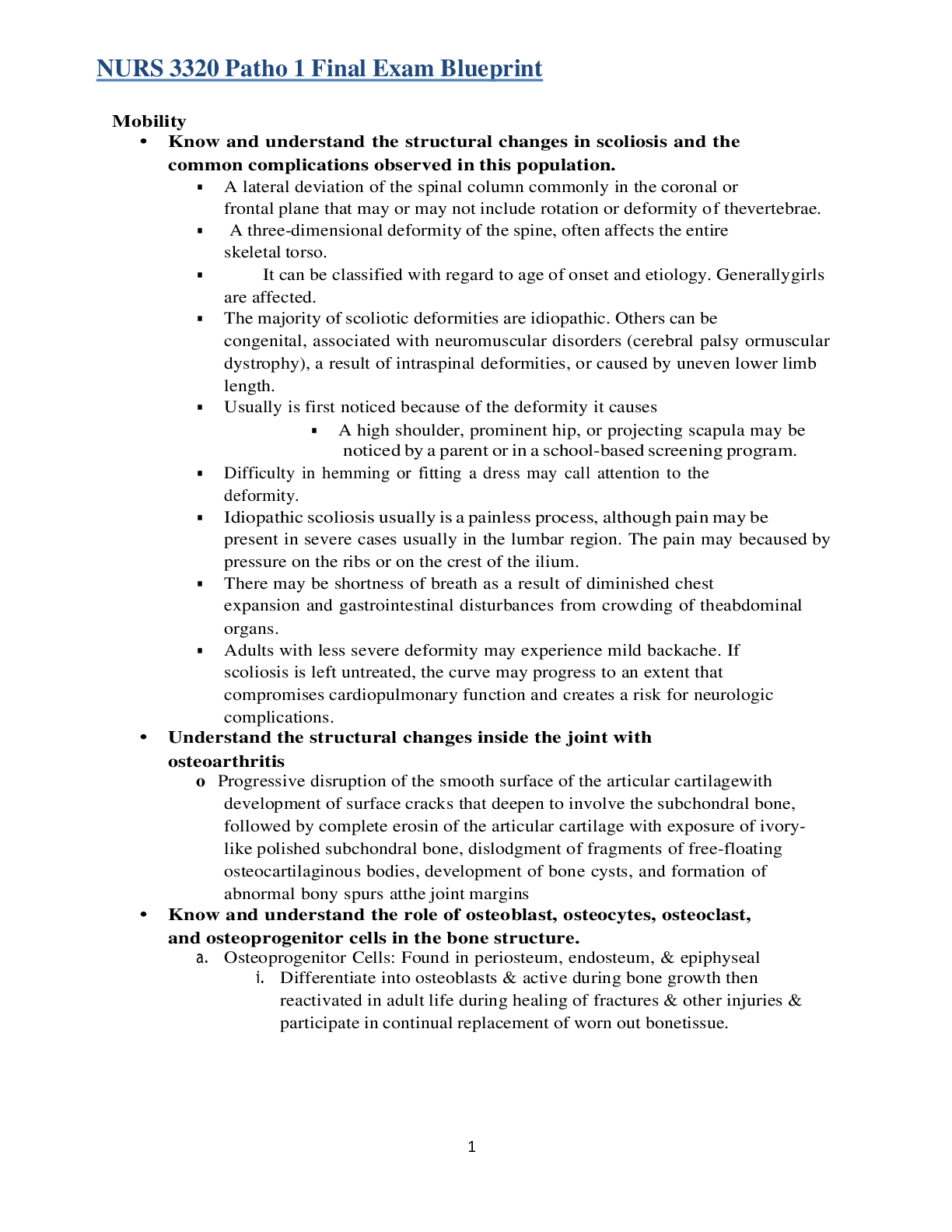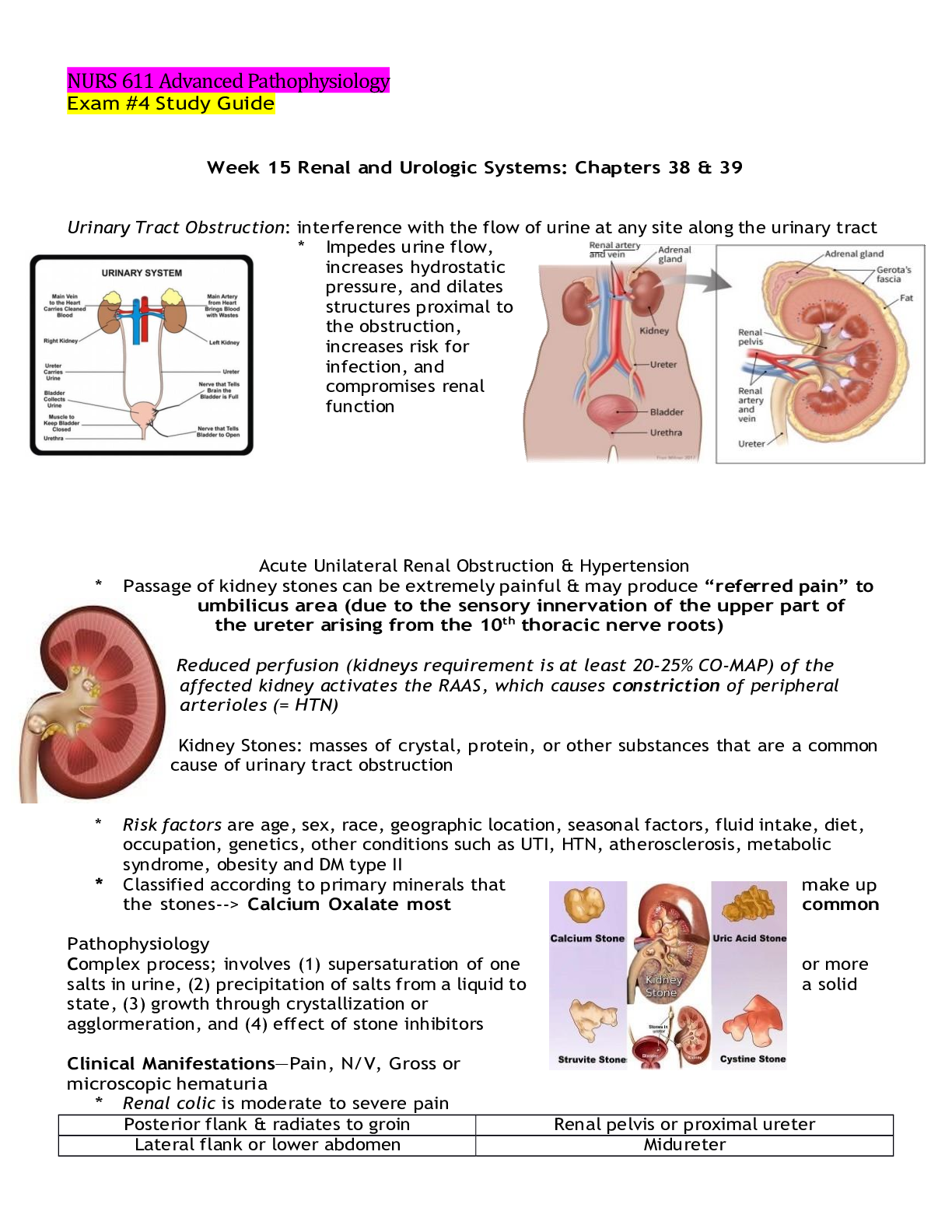*NURSING > STUDY GUIDE > Comprehensive Med Surg Exam 2 Study Guide Download for Grade A+ (All)
Comprehensive Med Surg Exam 2 Study Guide Download for Grade A+
Document Content and Description Below
Chap 11 Fluid compartments Intracellular 60% Contained within the cell body About 25L Veins, arteries, capillaries, heart, etc Extracellular 33% Most important area of homeostasis, area outside o... f cells Divided into intravascular space and interstitial space Extracellular fluid volume is about 15L In-between the cells Fluid Balance Closely linked to/affected by electrolyte concentrations Fluid intake 2.3-3L a day Fluid loss Minimum urine amount needed to excrete toxic waste products= 400-600 mL/day Insensible water loss-through skin, lungs, stool. Usually 500 to 1L a day This increases during a fever, tachypnea and extreme stress Facts to remember Any fluid imbalances that occur=continuous assessment of UOP Urine output Dehydrated pts, CHF, RF, Fluid volume deficient, and fluid volume overload IV fluids, diuretics Daily weights 1L of water weighs 2.2lb, equal to 1kg Weight change of 1lb= fluid volume change of about 500 mL Fluid volume deficit: Dehydration Fluid intake/retention does not meet bodys fluid needs; results in fluid volume deficit Assessment Thread and increased pulse rate; decreased BP; lethargy; decreased UOP; dry mucous membranes; constipation; thirst Increased H&H (hemoconcentration), BUN, sodium, and urine specific gravity Causes-vomiting, diarrhea, ileostomy, laxatives, burns, fever, diuretics, GI suctioning, and NPO Interview/risk factors Inquire about recent dietary habits Use of OTC diuretics Outdoor activities Weight gain and weight loss Who at risk: hemorrhage, vomiting, diaherra, excessive sweating, NPO, sustained burn wounds, GI suction, Diuretics, uncontrolled diabetes, Poor intake Flat neck and hand veins, increased RR, skin tenting, tongue wrinkles, dehydration, fever, UOP concentrated, Urine specific gravity concentrated (the higher the dryer) BUN and Creatinine BUN and Creatinine are kidney markers and are sensitive to decreased blood flow BUN (10-20) and Creatinine (06-1.2) rise when nitrogenous wastes are found in the blood indicating kidney impairment GFR (>65) typically has an inverse relationship (increased BUN and Creatinine with a decreased GFR)- chronic renal failure Elevations can be caused by dehydration Fluid volume overload Assessment Bounding and increase pulse; elevated BP; dyspnea, crackles on lung auscultation; edema; decreased Hematocrit (hemodilution), decreased serum sodium and urine specific gravity (dilute urine). Weight gain is the best indicator Causes- ESRD, CHF, water intoxication, SIADH, corticosteroid therapy, and rapid fluid replacement Drug therapy Diuretics (loop diuretics) Nutrition therapy Fluid restriction ( 1200 ml/day) Salt restriction Monitoring of intake and output Daily Weight!!!! ESRD= End stage renal disease SIADH= syndrome of inappropriate ADH Edema- while standing ankles, feet, while laying down sacrum, back Extreme cases it will be everywhere Electrolyte imbalances: etiology Hyponatremia Due to sodium loss, water gain, or inadequate intake Sodium loss: drugs; diuretics, anticonvulsants, SSRIs, antipsychotics, cancer meds Hypernatremia Dehydration, excessive Na intake (sodium polystyrene, sodium bicarb, renal issue) Hypokalemia Not enough in too much out, depleting drugs, medical conditions Not enough in: inadequate K intake Too much out: GI fluid losses Depleting drugs: diuretics, corticosteroids, insulin, excessive laxative use, albuterol Black licorice-acts like aldosterone Hyperkalemia Too much intake, blood products, drugs, not enough excreted, crush injury supplements Too much intake: increased dietary intake,, salt substitutes, potassium Donated blood Drugs: K sparing diuretics, ACE inhibitors, ARBs, NSAIDs Not enough excreted: renal failure ( low Na, K, protein diet) Crush injury: intracellular K released Hypocalcemia Inadequate intake, malabsorption, calcium loss, others Inadequate intake: calcium and vitamin D (sunlight) Malabsorption: post menopausal women, diseases that affect the small bowel, drugs (anticonvulsants) Calcium loss: loop diuretics Others: renal failure, hypoparathyroidism, low magnesium, multiple blood transfusions, alkalosis, low albumin levels Hypercalcemia Increased resorption from the bone Hyperparathyroidism Cancer Thiazide diuretics Hypomagnesemia Poor intake, poor GIT absorption, excessive GIT loss, excessive urinary losses Poor intake; alcoholics, patients on TPN or enteral feeding Poor absorption: IBD, celiac disease GIT loss: diarrhea, laxative use, NGT drainage Urinary loss: diuretics (loop and thiazide) Hypermagnesemia Excessive intake, impaired excretion Excessive intake: magnesium containing antacids/laxatives Impaired excretion: renal dysfunction Rare Sodium imbalances: affect CNS Hyponatremia Common: headache, irritability, disorientation/confusion, tired, abdominal cramping, muscle twitching/weakness, crave salt Worst case scenario (critical low): psychosis, seizures, ataxia, airway issues Treatment Mild: fluid restriction (safest), oral sodium supplements Critical: hypertonic 3% saline SLOWLY!!! Nursing implications: Monitor neurologic status, seizure/fall precautions, strict I/Os, implement fluid restriction, monitor labs Hypernatremia Common: [Show More]
Last updated: 1 year ago
Preview 1 out of 38 pages

Also available in bundle (1)

ATI Practice MED SURG Exam Bundle| Latest
ATI Practice MED SURG Exam Bundle| Latest | Download for Grade A+
By Quiz Merchant 2 years ago
$25.5
9
Reviews( 0 )
Document information
Connected school, study & course
About the document
Uploaded On
Mar 15, 2021
Number of pages
38
Written in
Additional information
This document has been written for:
Uploaded
Mar 15, 2021
Downloads
0
Views
73


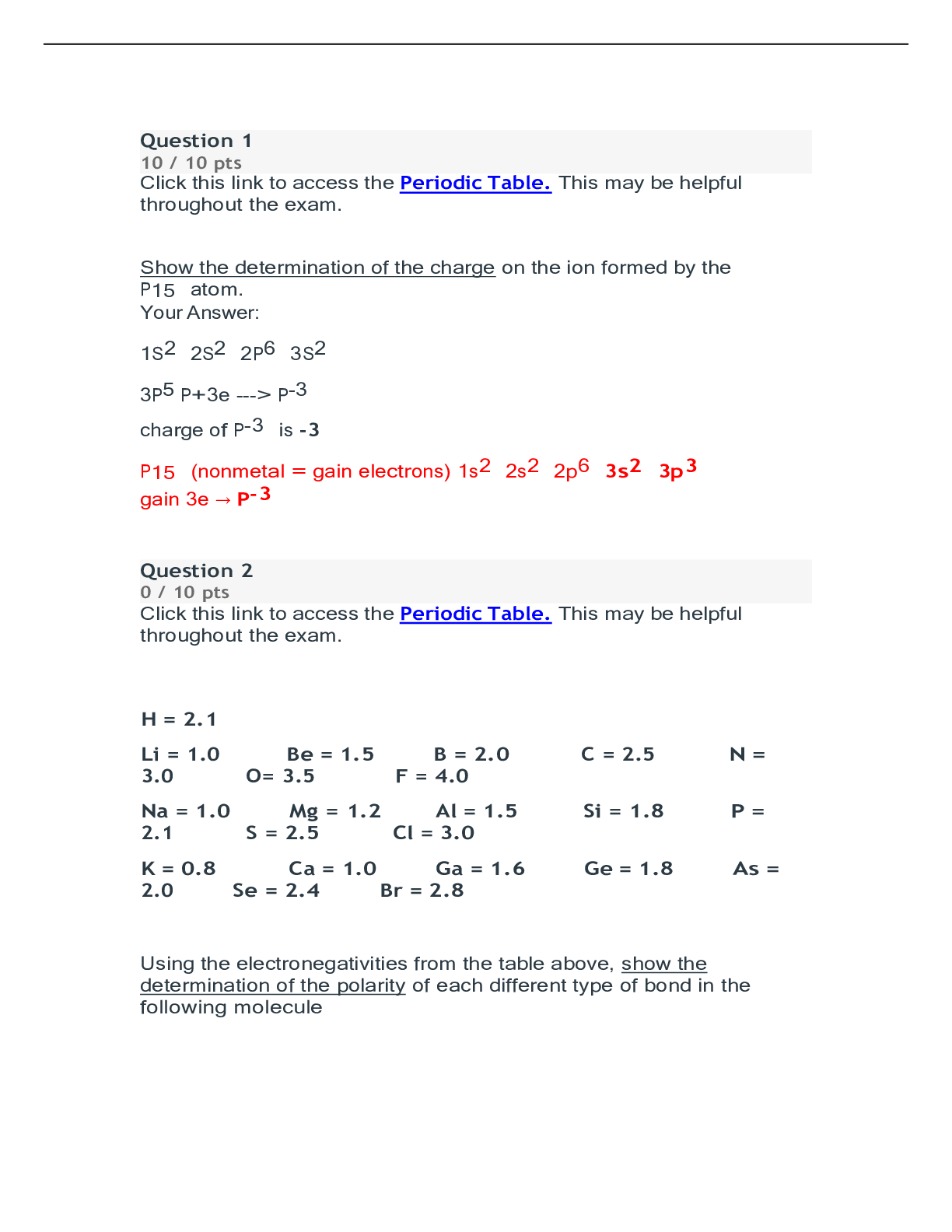
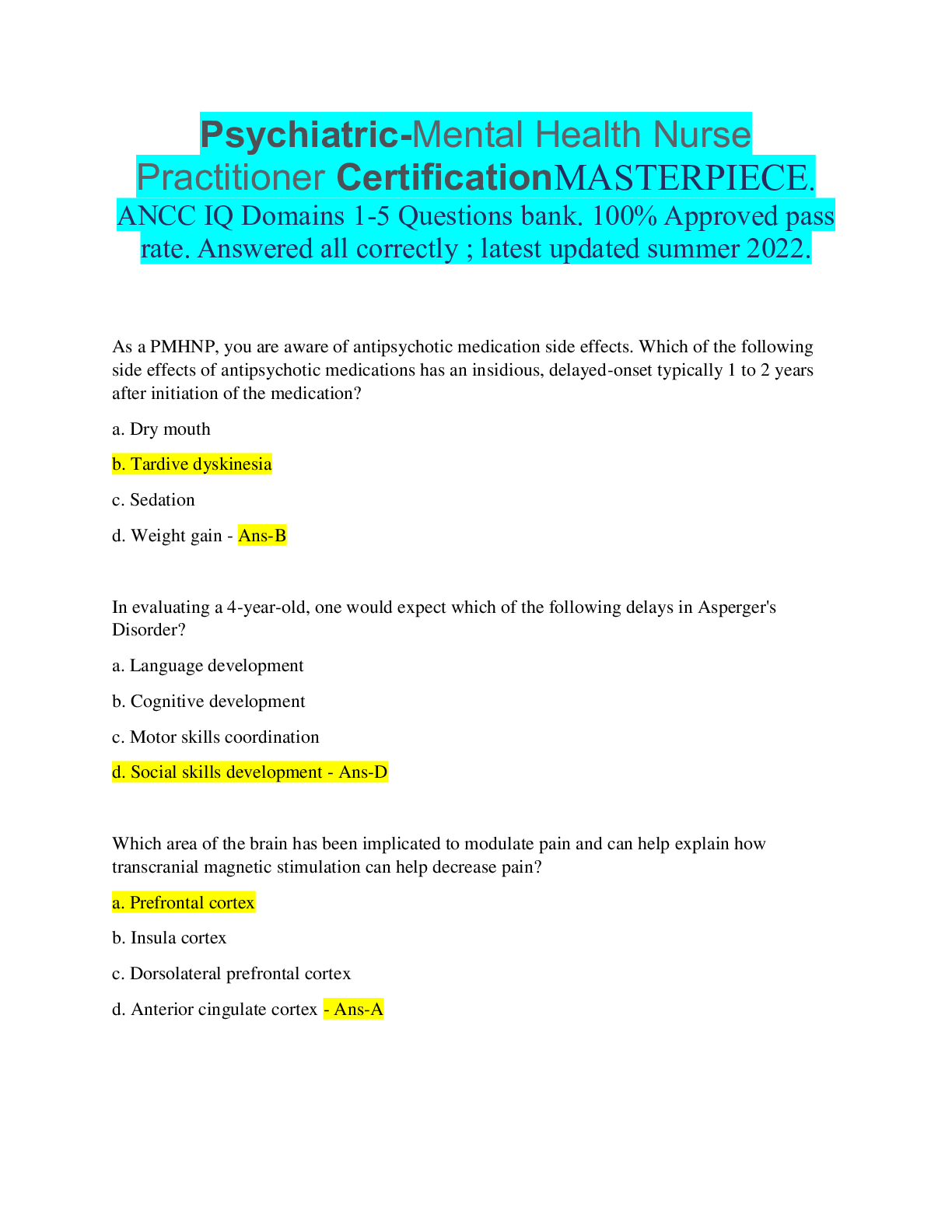
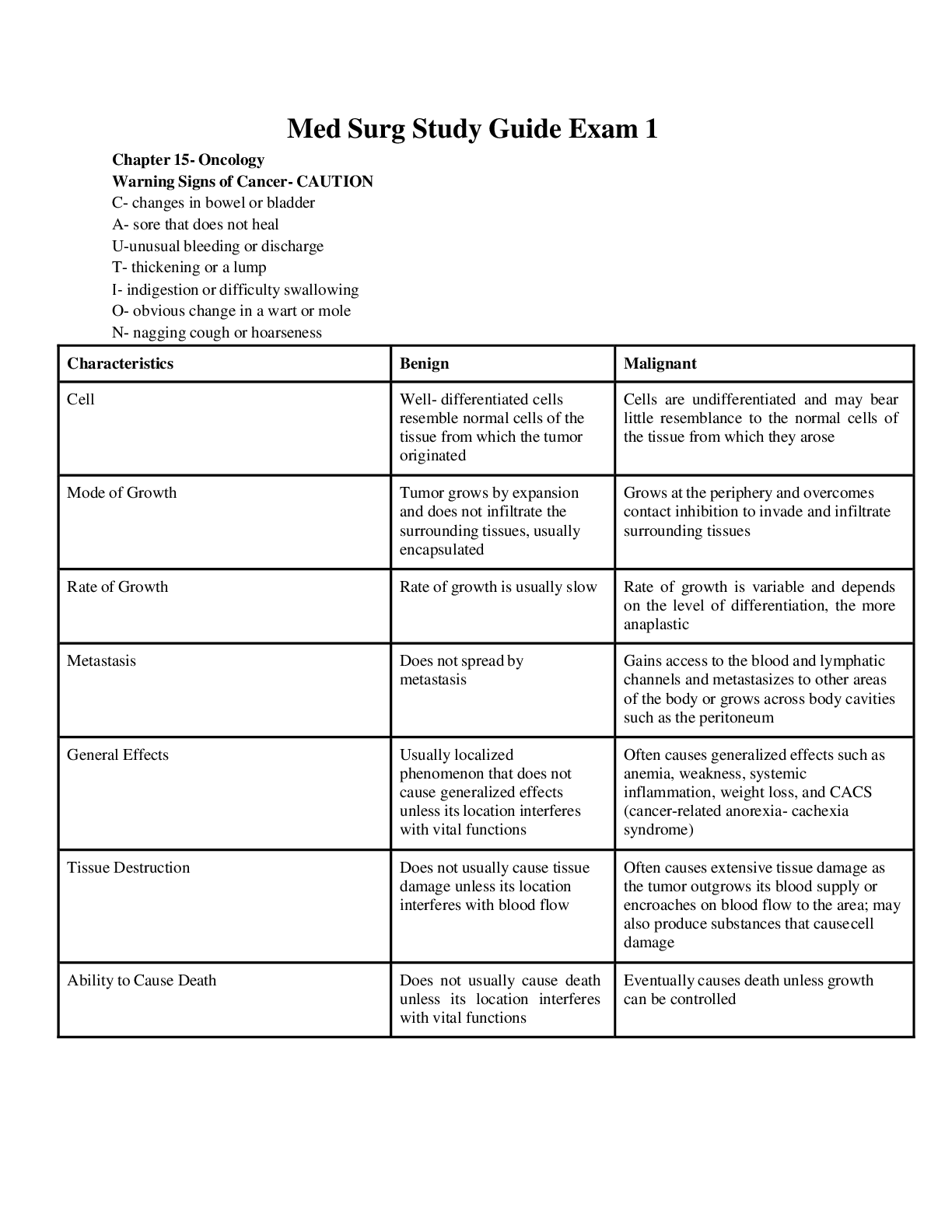
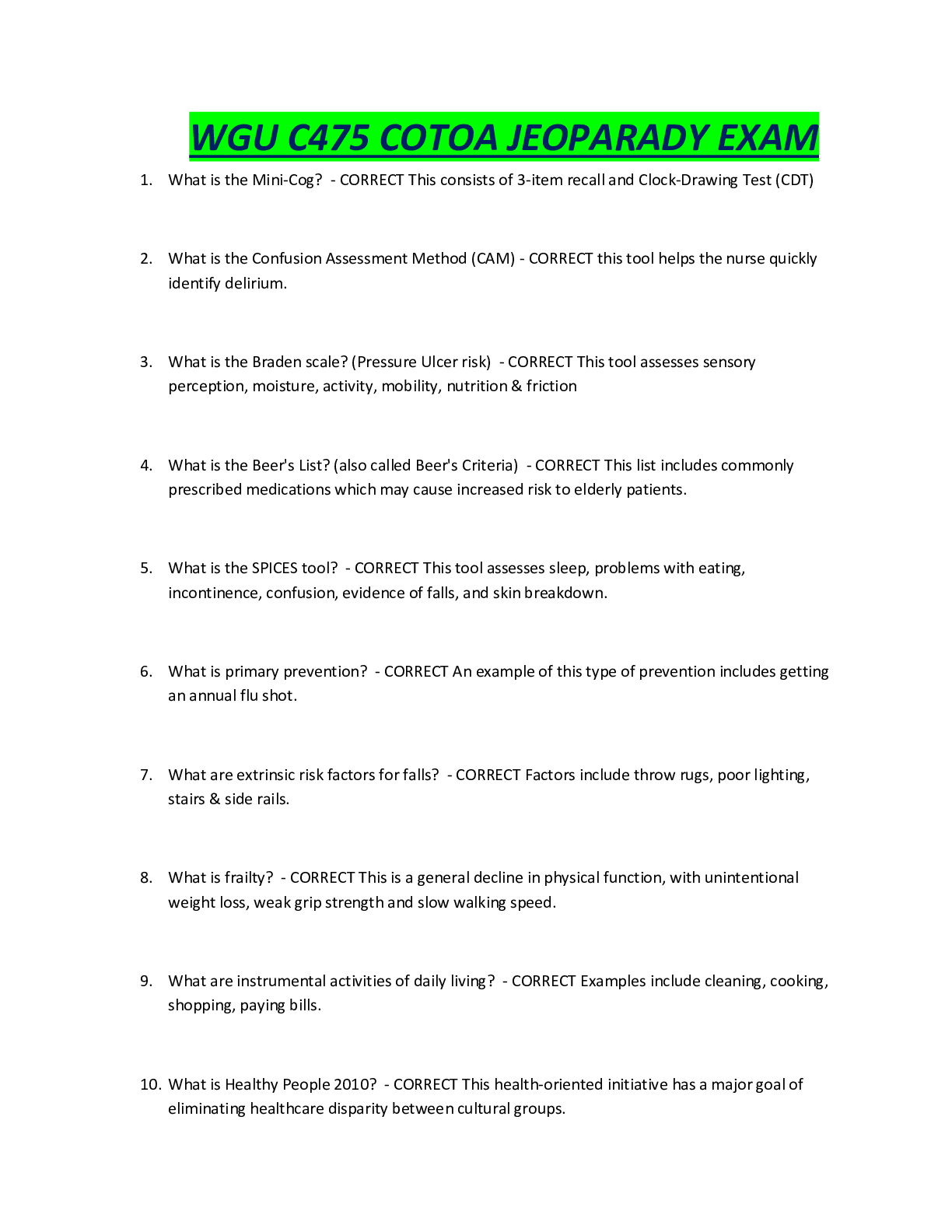
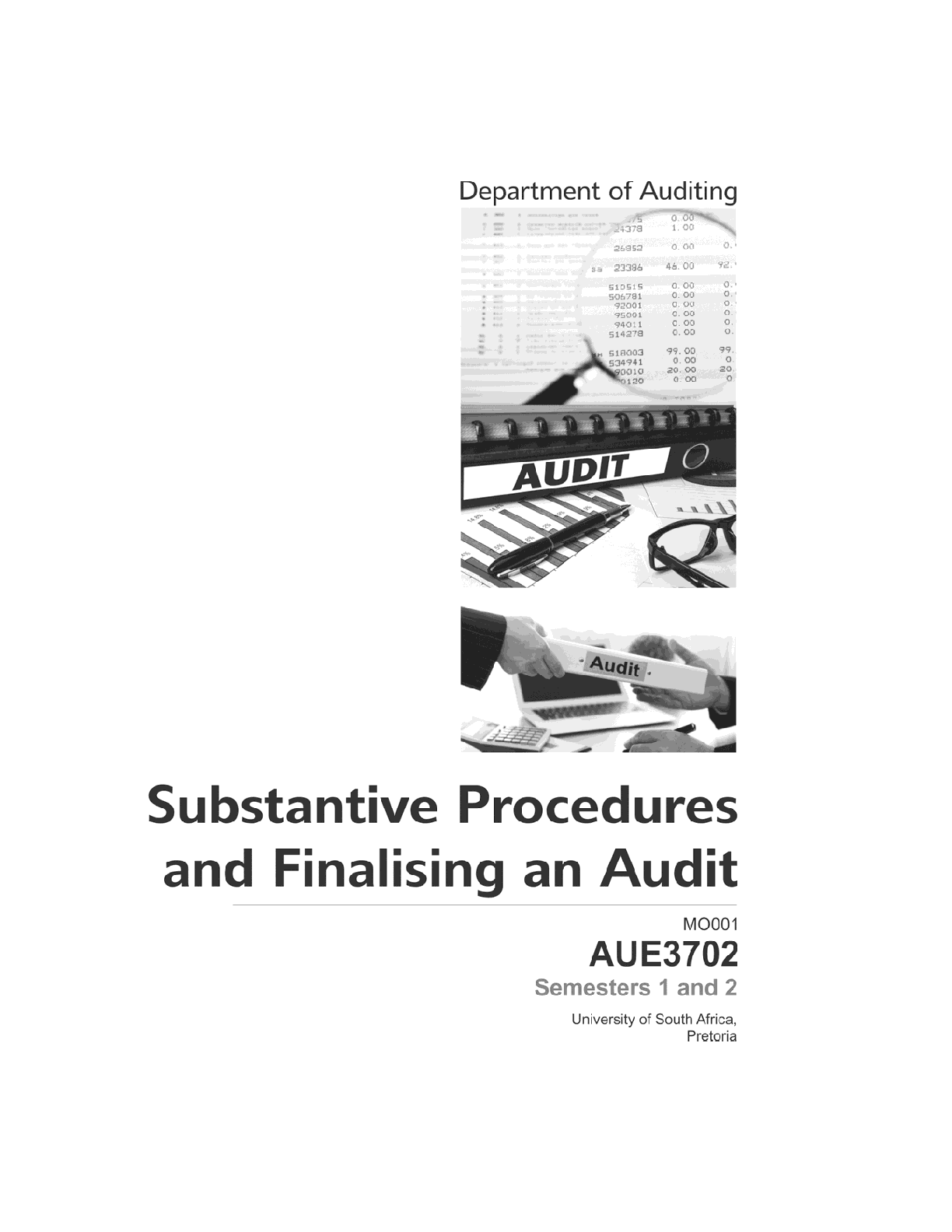


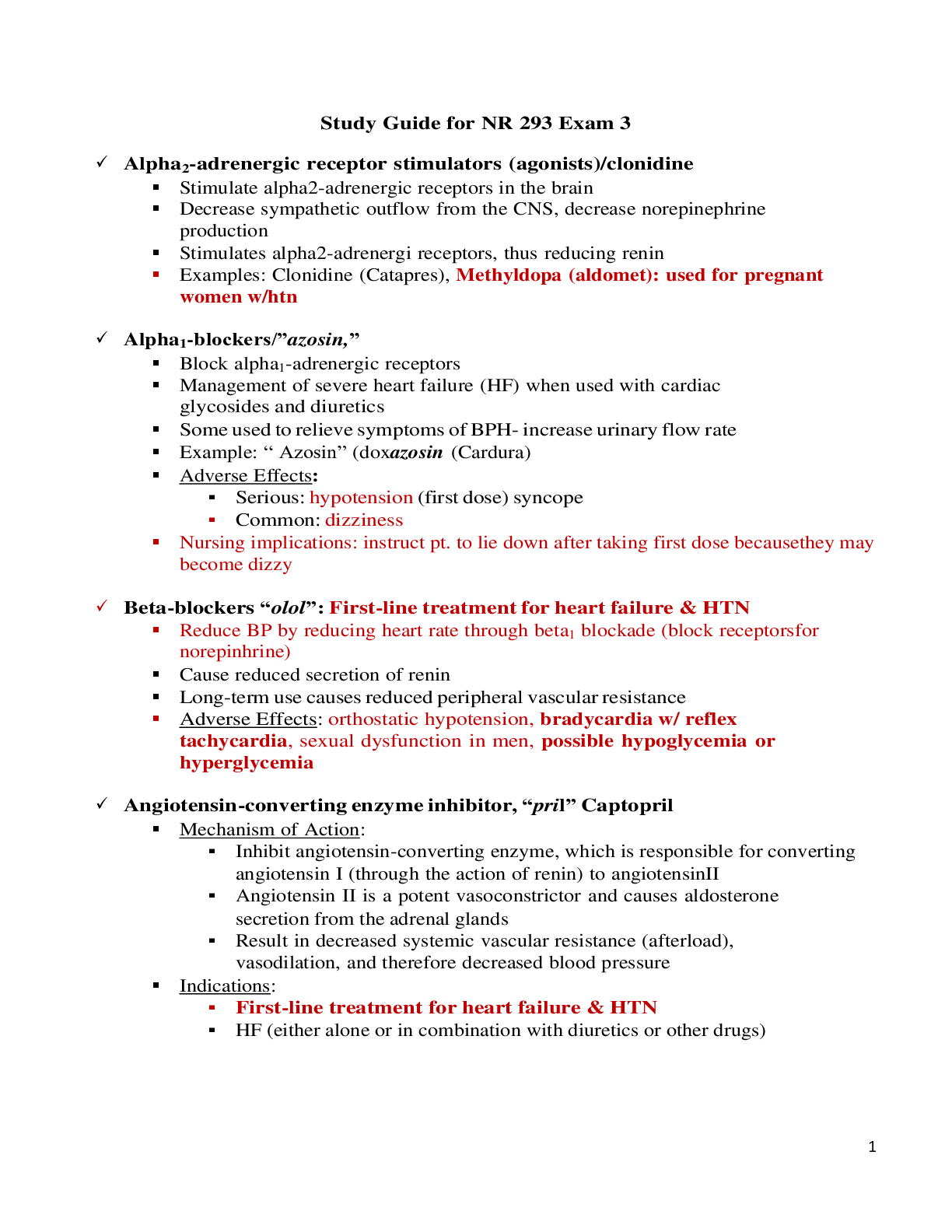


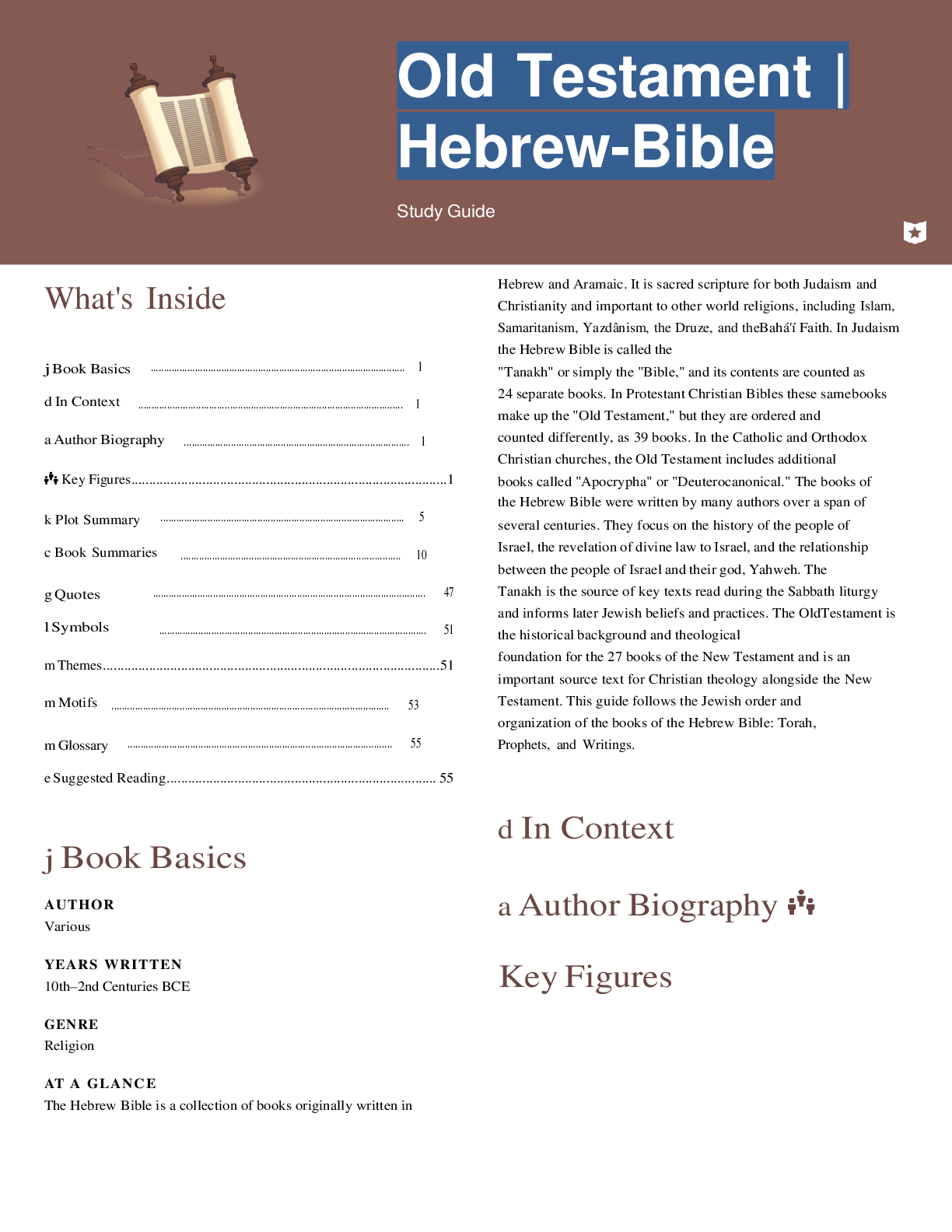
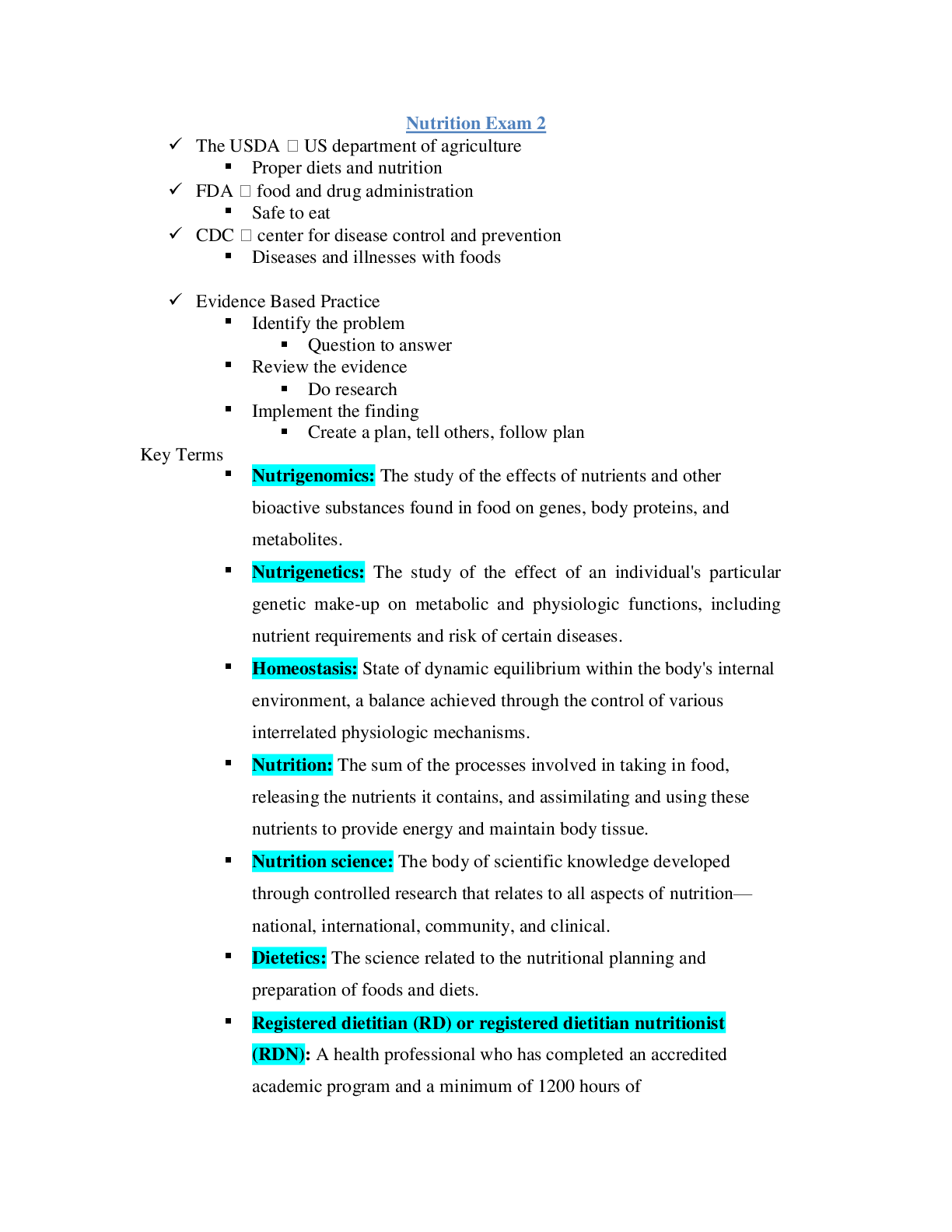
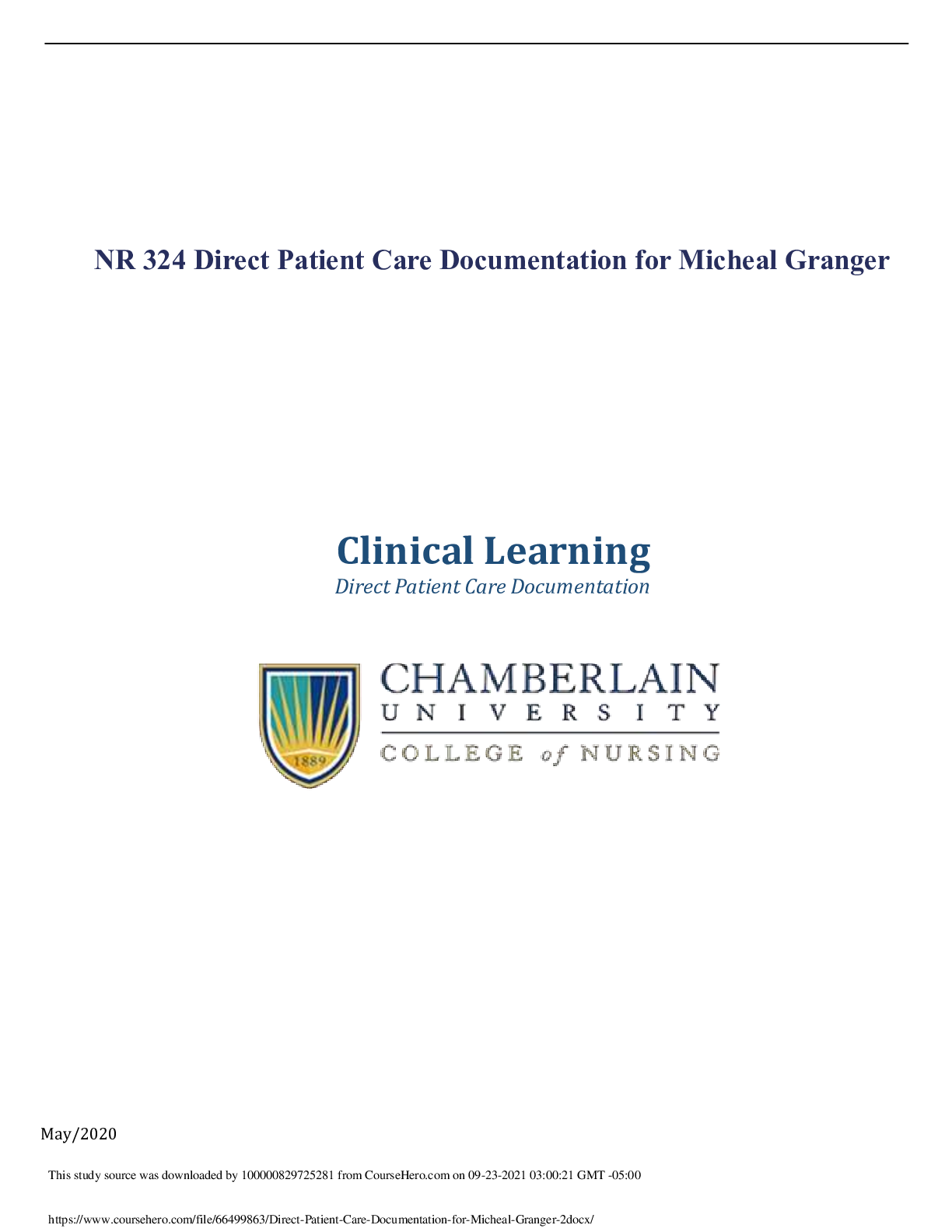

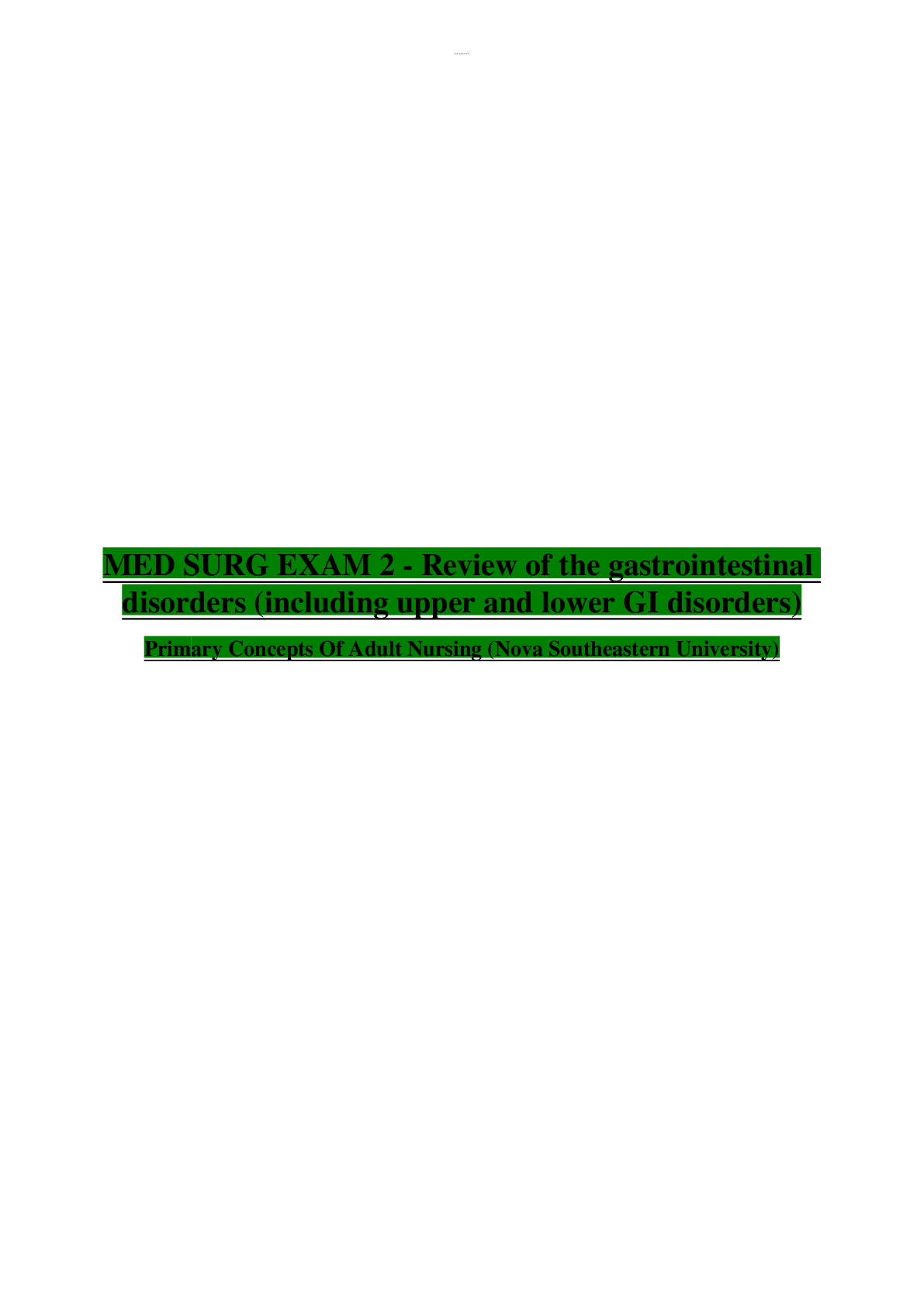
.png)
